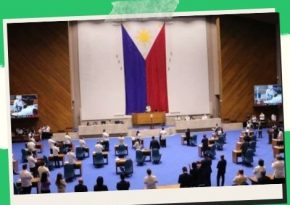
Multiple crises and transition to new economic order
The current period of multiple converging crises affecting the global economy is best described as a “transition,” and how central banks respond, along with the resilience of labor markets and the re-balancing of supply chains, will be among the factors determining what kind of economic order this transition produces, according to Mirek Dusek, managing director of the World Economic Forum (WEF), in an interview with Anadolu Agency.
Prior to the WEF Annual Meeting 2023, which will be held from January 16–20 in Davos, Switzerland, with the subject “Cooperation in a Fragmented World,” Dusek made his remarks.
The program at the 2023 WEF Annual Meeting in Davos, he said, “will reflect that reality by focusing on the dual imperatives of making the right decisions for economies, companies, and communities to get through these complex times while at the same time maintaining the ability to make major investments in the future.”
Numerous problems concerning food, energy, cost of living, excessive inflation, and climate have put a strain on the world economy.
Energy market supply shortages have been at record highs for more than a year, and Russia’s war on Ukraine has made the supply and demand imbalance even worse. As a result, energy prices, particularly for natural gas, have been surging.
As of August 26, 2022, natural gas costs for the Dutch Title Transfer Facility (TTF) had surged to €342 ($364) per megawatt-hour, a sharp increase from the €30/MWh level a year earlier.
Thanks to a milder winter and large storage levels in Europe, prices had dropped to €69/MWh as of Jan. 6 after experiencing significant increases over the previous year.
The main causes of the highest global inflation in decades are price increases in the food and energy industries.
Dusek claims that millions of people globally are being impacted by several converging crises with interconnected causes, particularly those residing in the most vulnerable areas.
As these crises’ causes and solutions are connected, he said, “we must come together to identify and act on measures that will not only mitigate the risk of such crises going forward, but even more importantly, enable us to articulate and implement a new growth, jobs, and security agenda for the future.”
putting an emphasis on sustainable change to address emergencies
Accelerating the switch to clean energy, mainstreaming ground-breaking technological advancements, and establishing efficient diplomatic mechanisms for a more competitive world, according to Dusek, are just a few of the action areas that can aid in the world’s increased resilience as it exits this period of uncertainty.
He called the state of affairs a “transition.”
Dusek called for effective government policies to recognize the current conditions as an opportunity to implement “much-needed policy reform,” adding that action by central banks along with the strength of labor markets and the nature of supply chains will be among the factors determining what kind of economic order this transition results in.
To decouple economic growth from energy consumption and to reduce carbon emissions in order to combat climate change, he suggested that policy should prioritize the transition to more sustainable energy sources.
In this context, the current intense worry about energy insecurity brought on by economic and geopolitical shocks should give momentum to speed up the transition to a more sustainable energy paradigm.
The impact of the crises is unprecedentedly global, thus policies should be pursued among all nations in a cooperative manner, according to Dusek.
In order to battle inflation, central banks from around the world have already been cooperating. He continued, “Wider government policy should also maximize prospects for concerted action.”
In an effort to rein in spiraling inflation, central banks have embraced a policy of raising interest rates.
In light of these crises, according to Dusek, the WEF’s goal to promote public-private partnership has never been more crucial or urgent, both for resolving the immediate crises and for creating long-term, systemic change.
To build understanding and alignment, scale innovation, and identify proactive answers to our shared problems through concrete action, he continued, “bringing together a wide range of stakeholders is vital.”
Save/Share this story with QR CODE
Disclaimer
This article is for informational purposes only and does not constitute endorsement of any specific technologies or methodologies and financial advice or endorsement of any specific products or services.
 Need to get in touch?
Need to get in touch?

We appreciate your reading. 
1.) 

Your DONATION will be used to fund and maintain NEXTGENDAY.com
Subscribers in the Philippines can make donations to mobile number 0917 906 3081, thru GCash.
3.) 
4.) 
AFFILIATE PARTNERS

World Class Nutritional Supplements - Buy Highest Quality Products, Purest Most Healthy Ingredients, Direct to your Door! Up to 90% OFF.
Join LiveGood Today - A company created to satisfy the world's most demanding leaders and entrepreneurs, with the best compensation plan today.

 Business, Finance & Technology
Business, Finance & Technology





